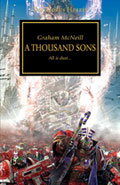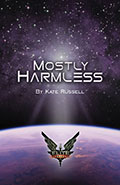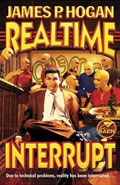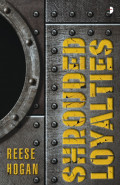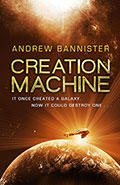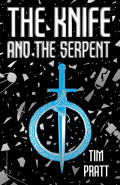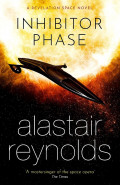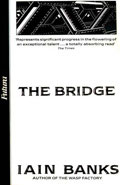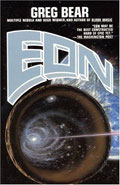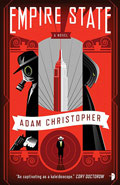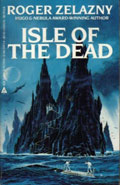Divine Murder
By Ward Kelley
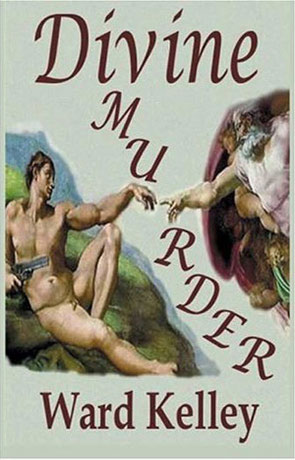
- Divine Murder
-
Author: Ward Kelley
-
Publisher: Not Specified
- ISBN:
- Published: 2001
- Pages: 390
- Format reviewed: Paperback
- Review date: 03/09/2010
- Language: English
- Age Range: N/A
Divine Murder is a speculative fiction novel by Ward Kelley.
One of the most fascinating elements of reading a fairy tale or a science fiction is the acceptance of a magical world where angels alight serenely with outstretched wings, birds and animals converse fluently, and uncommon things happen quite commonly. We know that the actions are unbelievable, yet we love to believe and accept them as real, wherein rests the success of such works.
With the ever-evolving scientific and technological outlook, we are, to a great extent, able to unravel the mysteries around us and substitute scientific reasoning to all the known natural phenomena. Yet, we are persistently inclined towards understanding the unexplained and the unknown. Religion attempted to offer “meanings” to those shady areas left untouched by science. However, science refuses to accept any truth that cannot be experimented, verified, and correlated to logical reasoning.
On reading "Divine Murder," one can easily discover that Mr. Kelley is not aiming to present yet another science fiction. The book ceases to contain itself to belong to this category, in spite of the storyline, genre, and meticulous descriptions of battles involving Star Wars weapons like sharp lasers and blue beams. Mr. Kelley raises interesting questions about the existence, role, and rules of god. "There may only be a small number of laws,” Stephen Hawking observes in his book Black Holes and Baby Universes, "which are self-consistent and which lead to complicated beings like ourselves, who can ask the question “What is the nature of God?"
That the book deals with supernatural events needs hardly a mention, as the readers will find themselves traversing into the realm of mystery where plentiful surprises unfurl one after the other. In the opening pages of "Divine Murder," Warren and Zoe, the primary characters of the story, find much to their surprise and bewilderment the Atlantic Ocean disappearing in front of their eyes! Like Alice stepped into Wonderland, they are sucked inside the water world through a door that leads to a crimson light and a world of weirdness. After a brief survey, the couple discovers a miraculous table that supplies instantly whatever they wish for - be it Colonel Sander's chicken, a bowl of broccoli soup, or Ayn Rand's Atlas Shrugged. Amusing themselves with the unearthly comforts, Warren and Zoe, encounters a strikingly enchanting pair, Ahriman and Belial, also known as the "Originals." It takes them a long time to understand that the Originals, who brought them here, have a "Plan" to eliminate the "First" by taking their assistance.
The story here skillfully deviates from the sci-fi tracks to that of religious speculations with increased momentum. The task of Zoe, the chosen one, is far from being simple. She has to fulfill the destiny of the human race by bringing the First - none other than God -- to finality!
Evil appeals and attracts with “valid” reasons. It offers inducements for those who resort to its applications. Belial, the beautiful, wins the confidence of Zoe by reasoning and influencing her thoughts. We are reminded of Milton's Paradise Lost, where the serpent cleverly induces Eve to consume the forbidden fruit of knowledge. A striking correlation could be traced with the choice of a female (Zoe) being used to disturb goodness. Zoe accepts the challenge. She approaches God with determination. She finds "his essence waving over her, his spirit beaming through her body." How does God look like? Mr. Kelley's creation of the Creator looks like "a perfect being of pure light...a pure being whose light was perfect." Zoe meets God. She accomplishes what noble saints, devout disciples, and mystics could not achieve!
The book concludes emphasizing the power of universal love with a Biblical touch. Why does God love human beings, the imperfect ones, who suffer? Mr. Kelley offers a different view: "...because they were the only beings, besides himself, to suffer. And so this was true, they were like him in their capacity to suffer. No other being held this likeness, no other beings could suffer, except the First and the Imperfect ones. And thus, he loved them greatly, so distinctive from a universe of accorded beings."
In "Divine Murder," the author offers ample opportunities to think afresh in an entirely new light some of the fundamental concepts concerning religion, love, and their interplay. Mr. Kelley's concerns on the alluring effects of evil and the limitations of science could be identified with that of Stephen Hawking: "Science cannot predict the future of human society or even if it has any future. The danger is that our power to damage or destroy the environment or one another is increasing much more rapidly than our wisdom in using this power."
Mr. Kelley fails to hide his poetic self from making recurrent appearances. The chapters carry such alluring titles like “dancing fireflies of mortality,” “the eggshell of her memory,” “where hearts are held aloft,” and “dancing cells and shifting skin.” Mr. Kelley draws references widely from Zoroastrianism to the Bible. The book vacillates between earth and non-earth, human beings and non-human beings, good and evil, God and Satan, reality and illusion. "Divine Murder" deserves praise for two major achievements: imagination of unthinkable and expression of unthinkable. An immensely enjoyable work!
Written on 3rd September 2010 by Anonymous.
